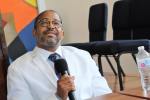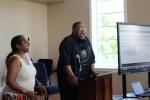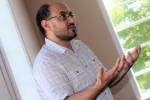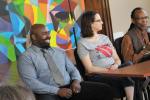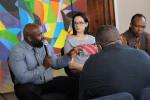
Wisdom’s Travail: The Emergence of ANE Royal Ideology and the Mystification of the Anthropological Sources of Violence
From the second to the first millennium BCE the Ancient Near Eastern (ANE) scribal tradition underwent an ideological shift: wisdom (nēmequ) “originally a human virtue” grounded in the observable “soil of experience” eventually gave way “to revelation as its ultimate source.” Wisdom became hidden, “a virtue solely of the gods,” beyond human understanding (van der Toorn, 2007). This paper attributes this shift to the emergence of a royal wisdom ideology that facilitated the rise of the first great empires (Porter, 2003). Mimetic theory reveals the deeper implications of this shift for the wisdom tradition.
Traditional wisdom, in its observation of human nature, developed a lucid understanding of the anthropological sources of mimetic violence. Since a dispute, likened to a pit, could engulf a person, “advice on responding to local adversaries or specific acts of abuse was a regular topic in ANE Wisdom instruction” (Zerbe, 1993). Texts copied over a millennium, by one generation of scribes after another, codified non-rivalrous conduct for merchants, diplomats, local officials, and royal courtiers. Even kings were expected to act wisely and exhibit self control in the heat of conflict. Wisdom’s regulation of mimetic rivalry contributed to centuries of social and political stability.
With aspirations of territorial expansion in the first millennium BCE, however, royal ideology co-opted nēmequ to justify an unprecedented scale of violence and warfare. Much that traditional wisdom once valued was violated to its core, and traditional wisdom came under attack. Teachings about mimetic rivalry disappeared, while the sources of human suffering were enshrouded in mystery. Wisdom became the art of exorcists called on to pacify the angry gods.
Hebrew wisdom (chokhmah) as a product of ANE wisdom, was subjected to the same shift, and yet it retained in The Book of Job the only significant response to wisdom’s disfiguration.
Susan Wright is president of the Theology & Peace. She earned an MA in Theology from Bexley Hall Episcopal Seminary. She is a regular presenter at COV&R.













